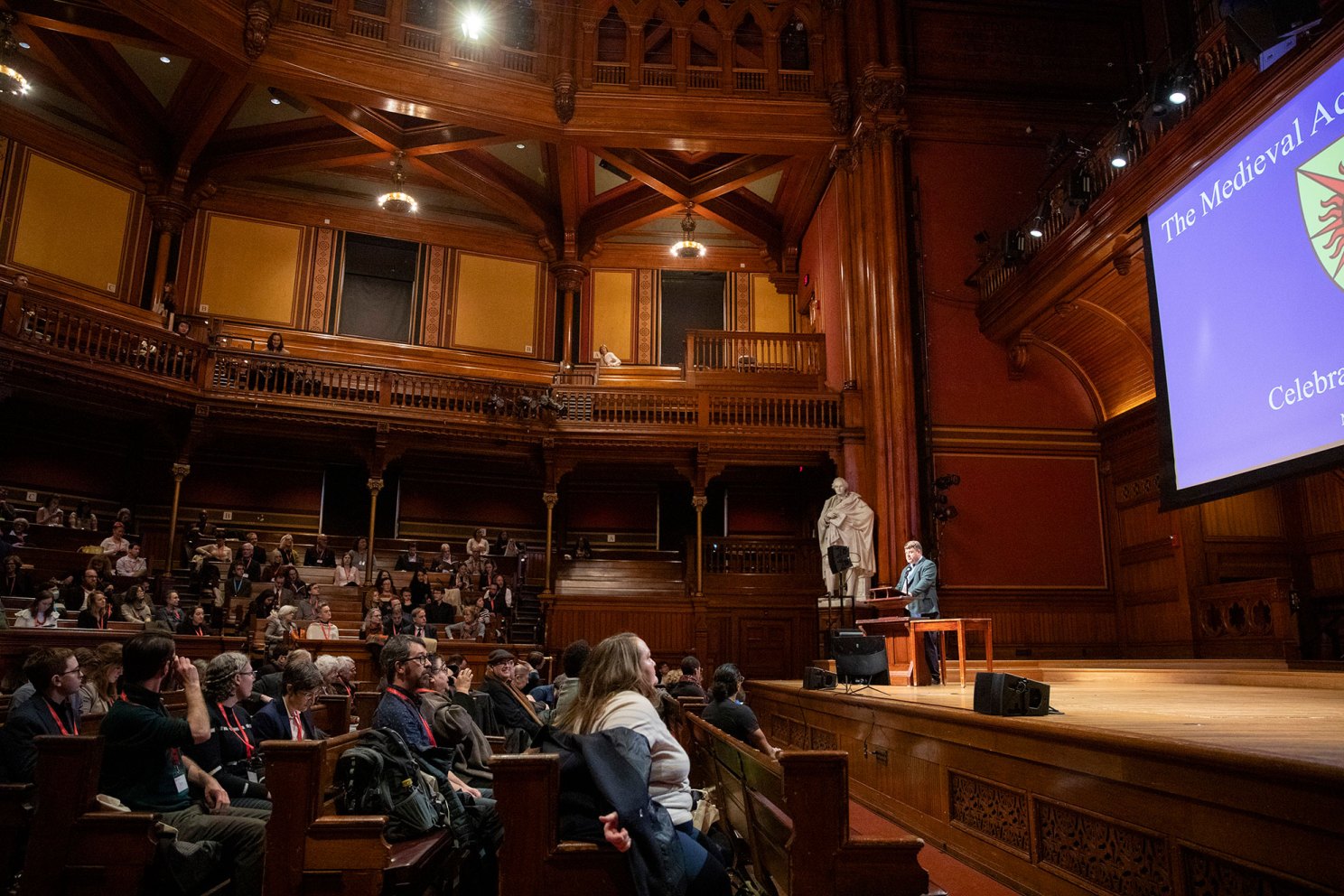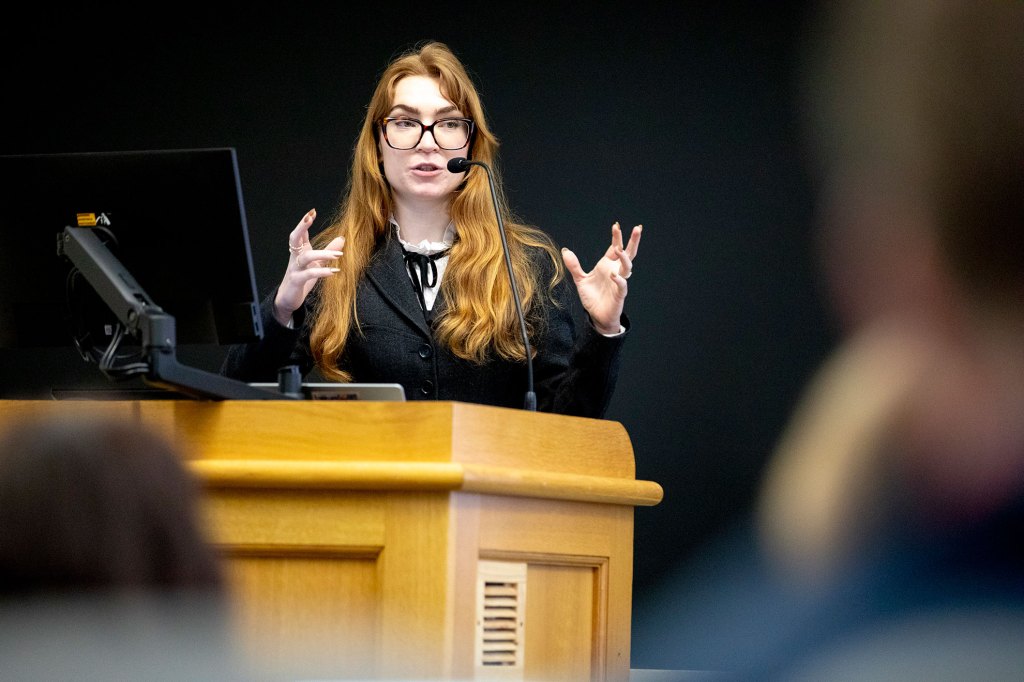For 100 years, a top stop for the world’s medievalists

Sean Gilsdorf, administrative director of the Committee on Medieval Studies, delivers opening remarks in Sanders Theatre.
Photos by Veasey Conway/Harvard Staff Photographer
800 academics convened in Harvard Yard for workshops, presentations, and discussion
The spread of misinformation online may feel like a modern problem. But more than 600 years ago, Geoffrey Chaucer, author of “The Canterbury Tales,” worried about the same thing.
According to Fernanda García-Oteyza, a Ph.D. candidate in religion at the Harvard Kenneth C. Griffin Graduate School of Arts and Sciences, echoes of Chaucer’s Middle-English poem “The House of Fame,” where rumor is depicted as an uncontrollable force of distortion, can be found in Patricia Lockwood’s “No One Is Talking About This” (2021), a contemporary novel about the internet’s ability to alter truth and destroy literary voice.
“Both Lockwood and Chaucer take up questions of poetic authority, creativity, and inspiration, poking at the troubled relationship between reality and fiction, between rumor and fame, diving headfirst into the cacophony of speech that produces them all,” García-Oteyza explained to an audience at Sever Hall.
“It’s very exciting to be bringing the Medieval Academy back to our home and to be able to demonstrate how medieval studies has changed and grown over the past hundred years.”
Sean Gilsdorf
García-Oteyza was one of nearly two dozen Harvard students who presented at the Medieval Academy of America’s 100th annual meeting in late March. The gathering is a top destination for medievalists worldwide. This time around, more than 800 academics representing 23 countries convened in Harvard Yard for a three-day conference featuring 500 speakers, plenary addresses, workshops, exhibits, and concerts.
“It’s been really fascinating to see how interdisciplinary the field is,” García-Oteyza said of her first medieval studies-focused conference. “It’s been really generative, I’ve been able to meet a lot of people, and recognize faces that I’ve seen on book jackets.”

The event was a homecoming, of sorts, for the Medieval Academy of America, established in Cambridge and Boston in the early 1920s. The conference was last held on Harvard’s campus for the 50th anniversary in 1975.
“It’s very exciting to be bringing the Medieval Academy back to our home and to be able to demonstrate how medieval studies has changed and grown over the past hundred years,” said Sean Gilsdorf, administrative director of the Committee on Medieval Studies at Harvard as well as a lecturer on medieval studies and co-chair of the conference’s program committee. “These historical moments offer a really great opportunity to think retrospectively but also to think prospectively. Where are we going as a field? What’s the scholarship that’s going to move us into the next century?”
This year’s conference reflected the field’s expanding global scope, with presentations of papers on the medieval worlds of the Mediterranean, the British Isles, Scandinavia, Africa, Central and East Asia, and Islamic regions. A daylong pedagogy workshop on teaching the Global Middle Ages, organized by Assistant Professor of English Anna Wilson, encouraged graduate students to think more globally as medievalists.
Elena Shadrina, Ph.D. candidate in the History Department, presented her research on medieval Venetian trade agreements, focusing on how verbal contracts, witnesses, and forms of written documentation were used by merchants before implementation of an official register system. Colin Brady, Ph.D. candidate in the Department of Celtic Languages and Literatures, presented his work on the revival of the Óenach Tailteann (Tailteann Games) regional assembly and sporting festival in 10th-century Ireland.
Emily Sun, Ph.D. candidate in the Department of English, presented her research on Meghan Purvis’ 2013 translation of “Beowulf,” focusing on Purvis’ perspective as an American woman approaching the Old English poem from across geographical and cultural distance. After the COVID-19 lockdowns, Sun said, she has renewed appreciation for attending conferences such as this one. These events provide opportunities to bring her work beyond the computer screen and into real conversations with other academics.
“This is a big part of what scholarship actually is — meeting your bibliography and having colleagues and professors and scholars from all rungs of the ladder at panels with you, watching your papers, and giving you ideas,” Sun said. “Seeing the recurring cast of characters who also happen to be your scholarly heroes is amazing.”




